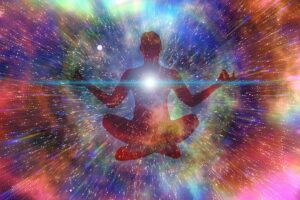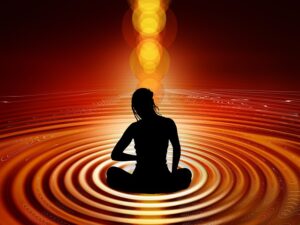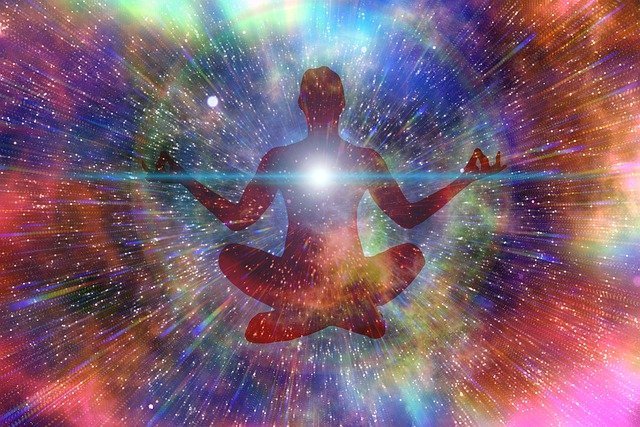
There is much debate surrounding the origins of consciousness, but some scientists believe that it may be something that evolves from the brain.
This theory is based on the idea that consciousness is simply a product of complex network interactions in the brain.
As these interactions become more and more complex, consciousness gradually emerges.
This theory has some evidence to support it.
For example, some patients who underwent surgery for epilepsy that involved removing parts of their hippocampus and the medial thalamus appeared to lose much of their ability to recollect memories and form new ones.
Dr. Anil Seth, a professor in neuroscience at the University of Sussex has proposed a ‘dynamic core hypothesis’ which suggests that normal consciousness only emerges when a critical number of neurons in the brain are active and linked together.
There is still much we don’t currently know about consciousness, and scientists need to develop more ways of measuring cerebral activity in order to fully understand it.
However, it’s possible that one day we could be able to mimic the brain activity associated with consciousness using a computer or build artificial intelligence that can match or even exceed human thought.
What is consciousness?
Consciousness is a fascinating but elusive phenomenon: it is difficult to define, and even harder to explain.
Much progress has been made, however, in understanding how the brain supports conscious functions.” – from British Association for Cognitive Neuroscience
In its most general sense, consciousness describes being awake and aware of our surroundings.
However, there are several different aspects to consciousness, including the ability to:
- Perceive and process information from our environment
- Think and reason
- Feel emotions
- Remember past experiences
- Plan for the future
All of these abilities are mediated by the brain, so it’s not surprising that scientists have been trying to unravel the mysteries of consciousness for many years.
How does consciousness originate?

There is still much disagreement among scientists about how consciousness arises.
Some believe that it is an innate quality, while others think that it emerges as the brain develops and becomes more complex.
One theory that has been gaining traction in recent years is the idea that consciousness evolves from the brain.
This theory is based on the idea that consciousness is simply a product of complex network interactions in the brain.
As these interactions become more and more complex, consciousness gradually emerges.
This theory has some evidence to support it.
For example, some patients who underwent surgery for epilepsy that involved removing parts of their hippocampus and the medial thalamus appeared to lose much of their ability to recollect memories and form new ones.
What is the purpose of consciousness?
Scientists are still exploring this topic, but there is no single answer.
For example, some scientists believe that it evolved as a way to make more efficient decisions (the decision-making theory of consciousness).
Others believe that consciousness has an evolutionary purpose related to social interactions (the social intelligence hypothesis), while others think that it has no discernible purpose (the hard problem).
What happens to consciousness when we sleep?
We don’t understand why brain activity changes so dramatically when we go from being awake to sleeping, but there are some clues.
For example, people who are woken up several times through the night will show reduced dreams compared with periods of uninterrupted sleep, suggesting that dreaming occurs during specific stages of sleep.
Scientists are still exploring this topic, but it is known that different aspects of consciousness are affected by sleep (e.g., some aspects of memory are consolidated during sleep).
What happens to consciousness when we die?
We don’t know what happens to consciousness when we die, but scientists are exploring this topic.
For example, we know that brain activity changes when we die and some scientists think this may account for the experiences reported by people who have had a near-death experience (NDE).
What is the relationship between consciousness and free will?
Free will refers to the idea that we could have acted differently than we did in the past.
It is a complex topic and scientists are still exploring the relationship between consciousness and free will.
Some people believe that consciousness is necessary for free will, while others think that it might be possible without consciousness. However, at this point, there is no definitive answer.
Is consciousness simply a product of the brain?
There is still much we don’t know about this complex phenomenon, but there is evidence to suggest that it may evolve from the brain.
Scientists will continue to explore this topic in the hopes of understanding consciousness better.
Where does consciousness arise from in the brain?

Consciousness arises from various processes in the brain, particularly those that involve complex network interactions.
There is still much we don’t currently know about consciousness and scientists continue to explore this topic, but it is known that these complex network interactions give rise to different aspects of our conscious experience. For example:
- The ability to perceive and process information from our environment occurs when information travels between different parts of the brain.
- The ability to think and reason emerges through interactions between the prefrontal cortex (which is involved in planning and reasoning) and other areas of the brain.
- The ability to feel emotions originates in connections within neural circuits that link together parts of the limbic system (which is linked to emotional behavior) with the cortex.
- Memory storage and retrieval are created through interactions between different parts of the brain, including the prefrontal cortex, hippocampus, amygdala and medial thalamus.
- The ability to plan for the future emerges from connections between neural circuits that link together areas of our thinking brain (the prefrontal cortex) with areas involved in motivation and emotion (the limbic system).
How does the brain support conscious functions?
The brain supports conscious functions through a variety of complex network interactions.
These interactions give rise to different aspects of consciousness, including the ability to perceive and process information, think and reason, feel emotions, remember past experiences and plan for the future.
Scientists are still exploring this complex phenomenon, but there is evidence to suggest that consciousness may evolve from the brain.
- See also: What is the connection between music and the brain
- See also: What is the process for storing and recalling memories in the human brain
How much of the brain is conscious?
We still don’t know how much of the brain is conscious, but scientists are exploring this topic.
It is known that different parts of the brain support different aspects of consciousness, so it is likely that most, if not all, of the brain participate in some way in our conscious experience.
Conclusion
There is much we still don’t know about consciousness, but scientists are exploring this topic in order to better understand this complex phenomenon.
We know that consciousness arises from various processes in the brain and that it involves a variety of complex network interactions.
We also know that different aspects of consciousness can be supported by different parts of the brain.



